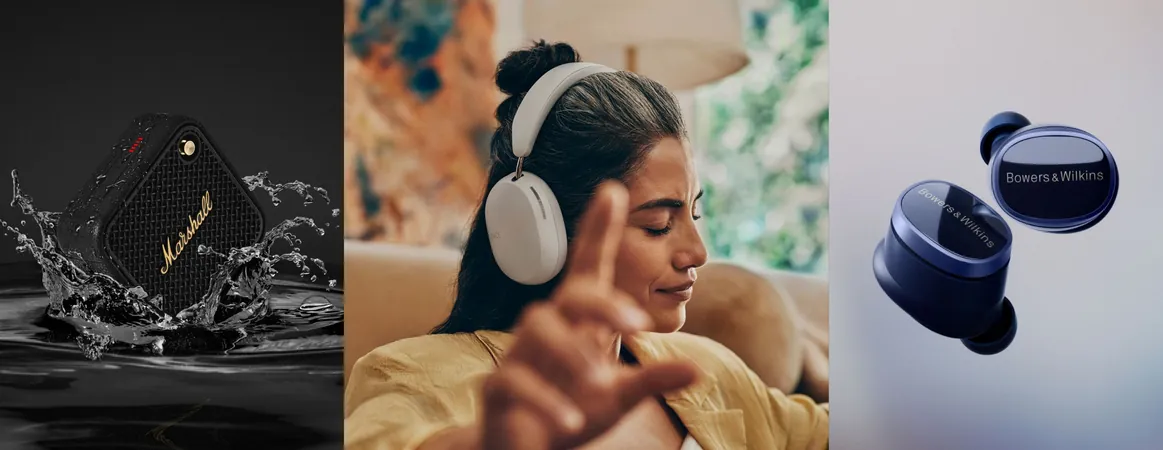
Is Flexing Wealth a Sign of Success or Anxiety? Exploring the Obsession in Singapore
2024-11-11
Author: Siti
Introduction
In the glimmering streets of Singapore, where luxury is on full display, the sound of expensive watches ticking and brand-name outfits rustling has become part of the city’s soundtrack. In this bustling metropolis, status isn’t just a matter of pride—it's a key driver of the economy.
Communicating Worth
From dawn until dusk, Singaporeans find ways to communicate their unique worth. A designer handbag, a flashy sports car, or the latest tech gadget all serve as signals of success, shouting out the message, “Look at what I have.” However, beneath this surface of unabashed consumption lies a crucial question: Are we showcasing our riches out of genuine desire, or is it a desperate need to conform to societal pressures?
Psychological Insights
The notion of the inferiority complex, as proposed by psychologist Alfred Adler, sheds light on this phenomenon. Adler asserted that feelings of inadequacy might propel individuals to overcompensate, engaging in behaviors that conceal their vulnerabilities. Similarly, Sigmund Freud suggested that people often mask inner discomfort through overt actions. In Singapore’s highly competitive society, it appears that many are not simply flexing their wealth for status but are also seeking validation in a world that demands continuous improvement.
Cultural Pressures
In a culture that prioritizes success above all, mere competence is inadequate. To gain respect, one must flaunt their achievements. This relentless race, marked by a fear of falling behind, compels many to stretch their finances to the limit to keep up with ever-evolving trends. The reality is that status symbols like the latest smartphone or exclusive sneakers have become more than just possessions; they are integral to the narrative we wish to tell about ourselves.
Youth Perspectives
Yet, how genuine is this pursuit of status? Are we genuinely ambitious, or are we merely feeding insecurities tied to external validation? Graduates and young professionals alike often find themselves in this conundrum, battling the pull towards superficial markers of success.
Consider the perspective of, Warren, a 25-year-old who is weary of peer pressure products like Prime energy drinks. “It’s not about health; it’s about hype,” he remarks. “Invest in things that really matter—real experiences will outlast material displays of wealth.” Insights like his reveal a growing discontent among the youth regarding conspicuous consumption.
Critique of Appearances
Meanwhile, Ken, 26, comments on the absurdity of wearing fake luxury items during festive occasions, particularly during Chinese New Year. “It’s about keeping up appearances,” he notes, before sharing stories of relatives arriving in fancy cars they genuinely can't afford.
Even adults express frustration at how wealth is portrayed as a status symbol. Kara, a 43-year-old, criticizes the overblown display of bottle service in clubs, while Lorna, 45, highlights the pressures faced by families regarding their children’s educational achievements, pointing out how some parents flaunt their kids’ expensive enrichment classes.
Everyday Disruptions
Complaints also extend to everyday disruptions. Residents like Sarah, 27, and her partner Shaun, 34, slam the obnoxious sounds of luxury sports cars racing through their neighborhoods, stating, “What’s the point of flexing in a space where there’s literally no room to drive fast?” Their voices echo a sentiment shared by many tired of the volatile relationship between wealth and public kudos.
Hobbies and Superficiality
Even enthusiasts in niche hobbies feel the strain of societal pressures. Aaron, 39, warns against prioritizing expensive hobby gear over genuine enjoyment or skill development, leading him to wonder, “Are we judging others by what they possess rather than what they love?”
Larry, 33, expresses skepticism towards the “new rich” flaunting inherited wealth. “Just because your daddy bought it doesn’t mean you earned it,” he states, reflecting a widespread frustration towards privilege poorly displayed.
Social Media Influence
Social media doesn’t escape scrutiny either. Individuals often document their endeavors in a manner that transforms simple accomplishments into a public spectacle, as noted by Pete, 35, who criticizes those who feel the need to publicly share every success with ostentatious posts.
Humbly posing for a photo in business-class attire is perceived by Ou Yang, 34, as a subtle form of boasting. “It’s like they’re trying to boast while pretending to be relatable,” he remarks, highlighting a common societal trend.
Insecurity and Competition
Then emerges Kylie, 27, who calls out the insecurity in those who critique others' displays of wealth. “They’re just flexing their so-called emotional intelligence,” she observes, highlighting a darker side of the same obsession that drives the original flexing behavior—competition for superiority in perceived moral standing.
Ervin, 34, attributes some of the flexing culture to a superficial understanding of success. “If your network is your worth, then is your success even real?” he questions pointedly.
Oversharing in Professional Circles
In the age of platforms like LinkedIn, Junming, 30, warns against oversharing, where luxury becomes a sign of insecurity rather than achievement. “It’s not confidence; it’s just insecurity displayed in costly packages.”
Conclusion
Ultimately, flexing wealth has turned into an automatic reflex—a way to communicate success in an increasingly image-focused world. The pivotal inquiry remains—are we showcasing our riches because we genuinely desire to or because we feel an overwhelming need to fit in? Caught in this frenetic world of aspirations and appearances, perhaps it’s high time for a collective introspection: What truly are we striving to prove?

 Brasil (PT)
Brasil (PT)
 Canada (EN)
Canada (EN)
 Chile (ES)
Chile (ES)
 España (ES)
España (ES)
 France (FR)
France (FR)
 Hong Kong (EN)
Hong Kong (EN)
 Italia (IT)
Italia (IT)
 日本 (JA)
日本 (JA)
 Magyarország (HU)
Magyarország (HU)
 Norge (NO)
Norge (NO)
 Polska (PL)
Polska (PL)
 Schweiz (DE)
Schweiz (DE)
 Singapore (EN)
Singapore (EN)
 Sverige (SV)
Sverige (SV)
 Suomi (FI)
Suomi (FI)
 Türkiye (TR)
Türkiye (TR)